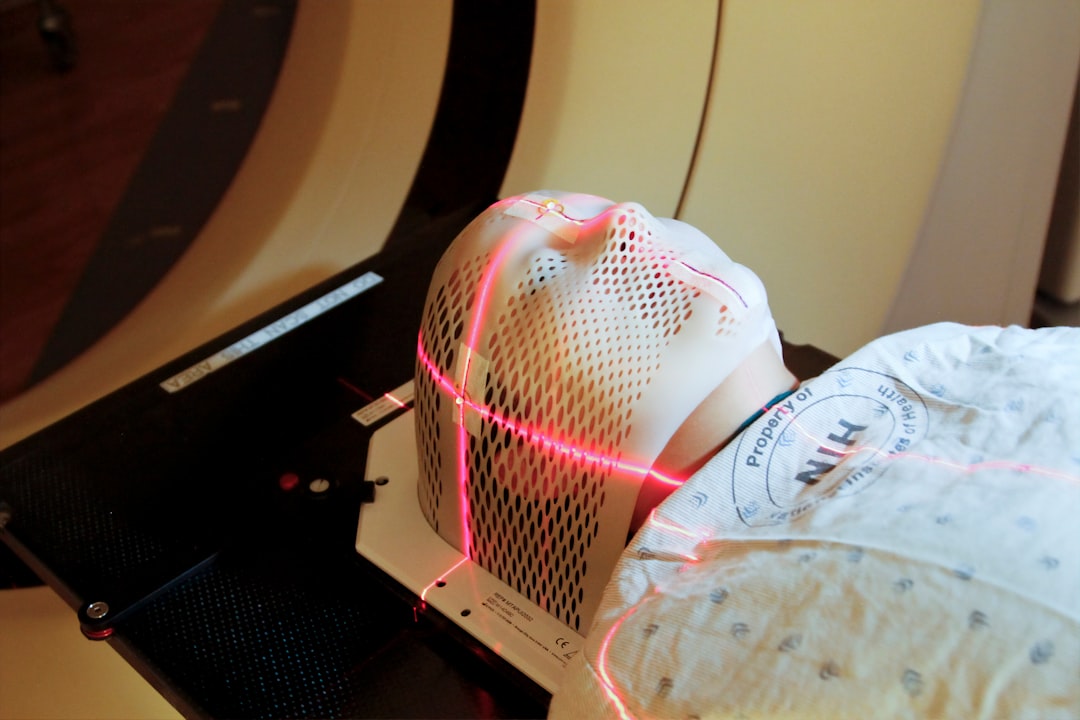Laser treatments for dark skin have become increasingly popular in recent years as more people seek effective solutions for various skin concerns. Laser treatments work by using concentrated beams of light to target specific areas of the skin, such as pigmentation, acne scars, and fine lines. However, when it comes to dark skin, there are some unique considerations to keep in mind. Dark skin contains more melanin, which can make it more prone to hyperpigmentation and scarring if not treated carefully. This means that choosing the right type of laser and finding a skilled provider is crucial for achieving safe and effective results.
Laser treatments for dark skin can be used to address a wide range of concerns, including hyperpigmentation, acne scars, fine lines, and even unwanted hair. The key is to find a laser that is safe and effective for darker skin tones. It’s important to note that not all lasers are suitable for dark skin, as some can cause damage or discoloration. Additionally, the energy levels and wavelengths used in laser treatments need to be carefully calibrated to avoid causing harm to the skin. This is why it’s essential to seek out a provider who has experience working with dark skin and understands the specific needs and challenges associated with it.
Key Takeaways
- Laser treatments for dark skin require specialized knowledge and expertise to avoid potential risks and side effects.
- Factors to consider when choosing a laser for dark skin include the type of laser, the provider’s experience, and the specific skin concerns being addressed.
- Top laser treatments for dark skin, such as Nd:YAG and diode lasers, are effective for hair removal, pigmentation, and skin tightening.
- Preparing for laser treatment on dark skin involves avoiding sun exposure, discontinuing certain skincare products, and following the provider’s pre-treatment instructions.
- Aftercare for laser treatment on dark skin includes protecting the skin from sun exposure, using gentle skincare products, and following the provider’s post-treatment recommendations.
- Potential risks and side effects of laser treatment on dark skin may include hyperpigmentation, hypopigmentation, and scarring if not performed by a qualified provider.
- Finding the right provider for laser treatment on dark skin involves researching their experience, asking for before-and-after photos, and seeking recommendations from trusted sources.
Factors to Consider When Choosing a Laser for Dark Skin
When choosing a laser for dark skin, there are several important factors to consider. First and foremost, it’s crucial to select a laser that is safe and effective for darker skin tones. This means looking for lasers that are specifically designed to target melanin without causing damage or discoloration. Additionally, the energy levels and wavelengths used in the laser treatment need to be carefully calibrated to ensure that they are suitable for dark skin. It’s also important to consider the specific concerns you want to address with the laser treatment, as different lasers are designed to target different issues, such as pigmentation, acne scars, or fine lines.
Another important factor to consider when choosing a laser for dark skin is the experience and expertise of the provider. Working with a skilled and knowledgeable provider is essential for achieving safe and effective results. Look for a provider who has experience working with dark skin and understands the unique needs and challenges associated with it. They should be able to assess your skin type and concerns and recommend the most suitable laser treatment for your specific needs. Additionally, it’s important to ask about the provider’s track record with dark skin and request before-and-after photos of previous patients with similar skin tones to see the results they have achieved.
Top Laser Treatments for Dark Skin: A Comparison
There are several types of laser treatments that are considered safe and effective for dark skin tones. One popular option is the Nd:YAG laser, which is known for its ability to safely target melanin without causing damage or discoloration. This makes it an excellent choice for treating hyperpigmentation, acne scars, and even unwanted hair on dark skin. Another option is the fractional laser, which works by targeting small areas of the skin with intense beams of light. This can help improve the appearance of acne scars, fine lines, and uneven skin tone on dark skin.
In addition to these options, the alexandrite laser is also considered safe and effective for dark skin. This type of laser is often used for hair removal but can also be used to target pigmentation and other concerns on darker skin tones. It’s important to note that while these lasers are generally safe for dark skin, it’s still crucial to seek out a skilled provider who has experience working with darker skin tones. They will be able to assess your specific needs and recommend the most suitable laser treatment for your concerns.
Preparing for Laser Treatment on Dark Skin
| Preparation for Laser Treatment on Dark Skin | Details |
|---|---|
| Skin Assessment | Consult with a dermatologist to assess skin type and potential risks |
| Sun Protection | Avoid sun exposure and use sunscreen to prevent skin darkening |
| Skin Care | Follow a skincare routine recommended by the dermatologist |
| Avoid Certain Medications | Discontinue use of certain medications that can increase skin sensitivity |
| Hydration | Keep the skin well-hydrated before the treatment |
Preparing for laser treatment on dark skin involves several important steps to ensure that you achieve safe and effective results. One of the first things you should do is schedule a consultation with a skilled provider who has experience working with darker skin tones. During this consultation, the provider will assess your skin type and concerns and recommend the most suitable laser treatment for your specific needs. They may also provide you with pre-treatment instructions, such as avoiding sun exposure and certain skincare products in the days leading up to your treatment.
It’s also important to follow any pre-treatment instructions provided by your provider to ensure that your skin is in the best possible condition for the laser treatment. This may include avoiding certain medications or skincare products that could make your skin more sensitive to the laser. Additionally, it’s crucial to protect your skin from sun exposure in the weeks leading up to your treatment, as sunburn or tanning can increase the risk of complications during the laser treatment. By following these pre-treatment guidelines and working with a skilled provider, you can help ensure that your laser treatment on dark skin is as safe and effective as possible.
Aftercare for Laser Treatment on Dark Skin
Aftercare for laser treatment on dark skin is an essential part of ensuring safe and effective results. Following your laser treatment, your provider will likely provide you with specific aftercare instructions to help promote healing and minimize the risk of complications. This may include using gentle skincare products and avoiding sun exposure in the days following your treatment. It’s crucial to follow these aftercare instructions carefully to help your skin heal properly and reduce the risk of hyperpigmentation or other issues.
In addition to following your provider’s aftercare instructions, it’s also important to protect your skin from sun exposure in the weeks following your laser treatment. This means wearing sunscreen with a high SPF and avoiding prolonged sun exposure, as UV rays can increase the risk of hyperpigmentation and other complications. It’s also important to keep your skin hydrated and avoid using harsh skincare products that could irritate your skin after the laser treatment. By following these aftercare guidelines and protecting your skin from sun exposure, you can help ensure that your laser treatment on dark skin is as safe and effective as possible.
Potential Risks and Side Effects of Laser Treatment on Dark Skin

While laser treatments can be safe and effective for dark skin when performed by a skilled provider, there are still potential risks and side effects to be aware of. One common risk is hyperpigmentation, which can occur if the laser treatment is not carefully calibrated for darker skin tones. This can result in darkening of the treated area, which may be temporary or permanent depending on the severity of the reaction. Additionally, there is a risk of scarring if the laser treatment is too aggressive or not performed by a skilled provider.
Other potential side effects of laser treatment on dark skin include redness, swelling, and discomfort in the treated area. These side effects are usually temporary and can be managed with proper aftercare and skincare products recommended by your provider. It’s important to discuss these potential risks and side effects with your provider before undergoing laser treatment on dark skin so that you have a clear understanding of what to expect. By working with a skilled provider who has experience working with darker skin tones, you can help minimize the risk of complications and achieve safe and effective results.
Finding the Right Provider for Laser Treatment on Dark Skin
Finding the right provider for laser treatment on dark skin is crucial for achieving safe and effective results. When searching for a provider, it’s important to look for someone who has experience working with darker skin tones and understands the unique needs and challenges associated with it. This may involve researching providers in your area and asking about their experience with dark skin during a consultation.
Additionally, it’s important to ask about the specific lasers they use for treating darker skin tones and request before-and-after photos of previous patients with similar skin tones to see the results they have achieved. By taking these steps and working with a skilled provider who has experience working with darker skin tones, you can help ensure that your laser treatment is as safe and effective as possible.
If you’re considering laser hair removal for dark skin, it’s important to find the best laser technology that is safe and effective for your skin type. In a related article on In Laser Hair Removal, you can learn more about the different types of lasers used for specific areas, such as the upper lip, and understand how many sessions may be needed for optimal results. For more insights on laser hair removal techniques and technologies, check out this article.
FAQs
What is the best laser for dark skin?
The best laser for dark skin is the Nd:YAG laser. This type of laser is safe and effective for treating dark skin tones because it has a longer wavelength that can bypass the melanin in the skin and target the hair follicle.
How does the Nd:YAG laser work on dark skin?
The Nd:YAG laser works on dark skin by emitting a longer wavelength of light that can penetrate the skin without being absorbed by the melanin. This allows the laser to target the hair follicle without causing damage to the surrounding skin.
Are there any risks or side effects of using the Nd:YAG laser on dark skin?
While the Nd:YAG laser is generally safe for dark skin, there are still potential risks and side effects, such as temporary redness, swelling, and changes in skin pigmentation. It is important to consult with a qualified and experienced dermatologist or laser technician to minimize these risks.
How many sessions are typically needed for laser hair removal on dark skin?
The number of laser hair removal sessions needed for dark skin can vary depending on the individual’s hair type, skin tone, and the area being treated. On average, most people require 6-8 sessions spaced 4-6 weeks apart to achieve optimal results.
Can laser hair removal be performed on all areas of dark skin?
Laser hair removal can be performed on most areas of dark skin, including the face, arms, underarms, legs, and bikini area. However, it is important to consult with a professional to determine the best approach for each specific area and skin type.






